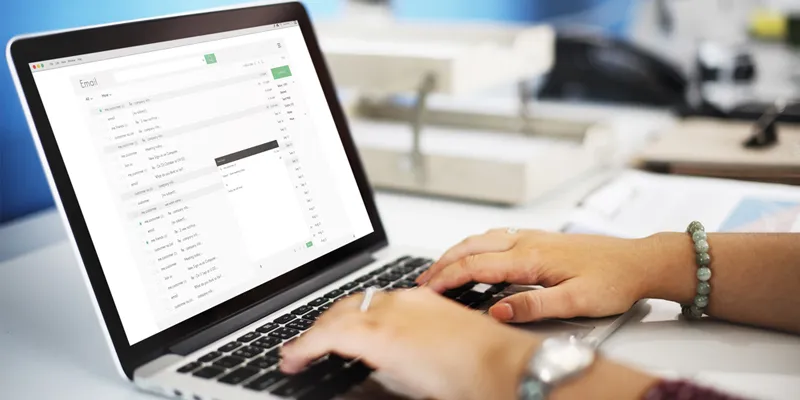5 simple steps to writing emails even CEOs will open
Email writing is an art in itself. A well-written email conveys the point to the reader clearly and encourages them to respond with more information. However, corporate emails today are a jumble of ideas and are packed with unnecessary information. The one rule to remember about writing compelling mails is simplicity is power. Time is a valuable resource and people don't like to read emails that don't directly affect them. No one is obligated to respond to an email, but if you want to write emails that even CEOs will open, follow these five easy steps.

Image : shutterstock
Write the subject line carefully
Just like the headline of a newspaper sets the tone of the entire article, the subject line of an email serves the same purpose. A reader can decipher from the subject line if an email is worth opening or not. Keep the subject line short, concise, and to the point. Avoid the abstract and focus on any action that is needed.
Keep the message clear and brief
Keep the sentences in your email short and to the point. The body of the email should be direct, and try to avoid any sort of build-up or beating around the bush. When your email conveys pertinent information at first glance, it captivates the reader's attention and convinces them to read further. If you need to communicate about different subjects to the same reader, send out different emails. This allows the correspondent to respond to one topic at a time.
Be careful about your tone
Keep your choice of words, punctuation, sentence length, and casing precise so that it can be easily interpreted without any audio or visual cues. When we meet a person face-to-face, we can use their body language and facial expressions to assess how they feel. Email robs us of this information, and therefore it is necessary to be polite and keep your tone in check at all times so that your message is not misconstrued.
Proofread your emails
Before you hit ‘send’, take a few minutes to peruse through your email to check for any grammatical, spelling, and punctuation errors. Just as your clothes determine your professional image, your emails do too, and therefore it is best to avoid any typos. Keep the length of the email in mind when you're proofreading. If you yourself get bored halfway through, you can't expect the reader to give it the attention it deserves.
Include a precise call-to-action
Your email should clearly specify what it is you're looking for. Whether you want more information or you're asking for expert advice, your email should be actionable. A well-crafted email goes to waste if no action request is made. If your call-to-action is not crystal clear, there is a high chance it can be misunderstood or ignored by the reader.
Your emails are a reflection of your values, professionalism, and attention to detail. Keep the above mentioned tips in mind if you want to write powerful emails that even CEOs will open.







